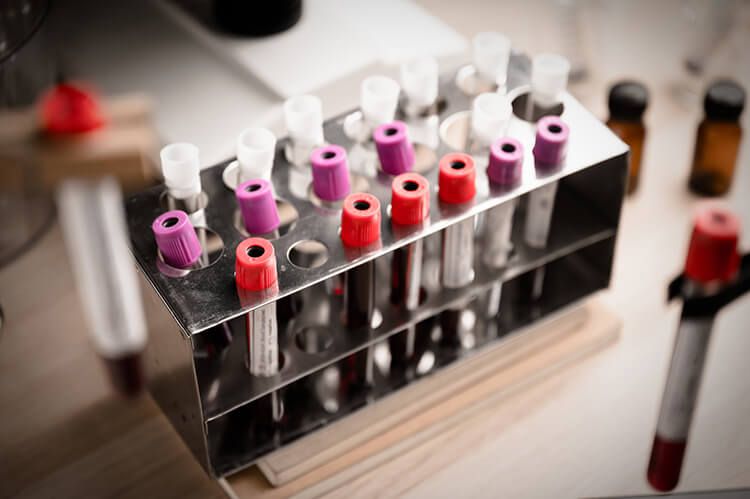
What is meant by immunological tests?
Immunological tests are a series of laboratory analyses and specialized tests that detect infections or disorders of the immune system.
The immune system’s role is to protect the body from pathogens by neutralizing toxins, pathogenic microorganisms, and cancer cells.
However, the immune system does not always work effectively. It can also turn against non-pathogenic organisms or even body cells.
An immunological test can detect a disease, assess its course, and help in treatment management.
Immunological tests for autoimmune diseases
Autoimmune diseases are diseases that occur when the immune system attacks the cells and the organs of the body.
Indicatively, the following diseases are related to autoimmune disorders:
- Multiple Sclerosis
- Rheumatoid Arthritis
- Hashimoto’s Thyroiditis
- Type I Diabetes
- Crohn’s Disease
- ALS
- Systemic Lupus Erythematosus (SLE)
- Psoriasis
- Ulcerative Colitis
- Dermatitis
- Myasthenia
Depending on the profile of the autoimmune disease, the following immunological tests can take place:
- General Blood Count (CBC), ESR, C-reactive protein (CRP)
- C3 & C4 Blood Test
- Uric acid (UA), transaminases (ALT / AST), CK, LDH
- Rheumatoid factor (RF) and anti-citrulline antibodies (anti-CCP)
- Antinuclear antibodies (ANA) and ANA profile
- Anti-cardiolipin antibodies
- Thyroid peroxidase antibodies (anti-TPO), anti-thyroglobulin (anti-Tg), TSH receptor antibodies (TRAb)
- Antibody assay for smooth muscle fibers (ASMA)
- Antimitochondrial antibodies (AMAs)
Screening for Sexually Transmitted Diseases
Sexually Transmitted Diseases (STDs) are diseases or infections that are transmitted from person to person mainly through sexual behavior. Some STDs can be transmitted through contact with infected blood or from mother to baby during childbirth or breastfeeding.
A full screening for STDs includes:
- Test for Hepatitis A (Anti-HAV), Hepatitis B (Australian Antigen), and Hepatitis C (Anti-HCV)
- Testing for HIV-1 & HIV-2 Total Antibodies to detect the virus that causes AIDs
- Molecular test for Chlamydia, Ureaplasma, Syphilis, Mycoplasma, Trichomonas, and Gonorrhea
- Molecular detection of human papillomavirus (HPV)
- Genital herpes test
- Pap smear and vaginal culture test
Immunological tests at PLUS diagnostic center
Using state-of-the-art devices, PLUS microbiology laboratory conducts a series of routine analyses and specialized tests that detect:
- Bacterial, viral, mycoplasmal, and parasitic infections
- Sexually Transmitted Diseases (STDs)
- Autoimmune diseases
- Immune deficiencies
- Histocompatibility antigens
- Allergies
Specialized immunological analyzers run the measurements. An experienced Medical Biopathologist evaluates the results before sending them to the patient.

Roche Cobas 411
Immunology analyzer that utilizes electrochemiluminescence technology for high precision results.

Roche Elecsys 2010
Immunology analyzer with the ability to analyze 86 samples per hour, for rapid control and diagnosis of diseases.

Maglumi 800
Immunology analyzer that uses enzymatic chemiluminescence immunoassay to detect antibodies.

Specialization
Well-trained staff with experience in immunoassays and ongoing scientific training.
Frequently Asked Questions
CRP or c-reactive protein is a protein produced by the liver in response to an inflammation or infection. Under normal circumstances, blood does not have high levels of CRP concentrations.
In case of cell necrosis (infection by pathogen, trauma, cancer, autoimmune disorders), CRP levels increase. However, CRP is a non-specific indicator, which means that it cannot diagnose a specific disease.
RAST test is a blood test that determines the substances, to which a person might be allergic.
Usually, it is used to confirm results of dermatological allergy tests that indicate a significant degree of sensitivity.
RAST test is highly specialized, as it checks the blood for specific IgE antibodies. Through a graduated measurement, it checks and determines whether a person is sensitive to various allergens.
PLUS diagnostic center performs RAST test for the diagnosis of allergies.